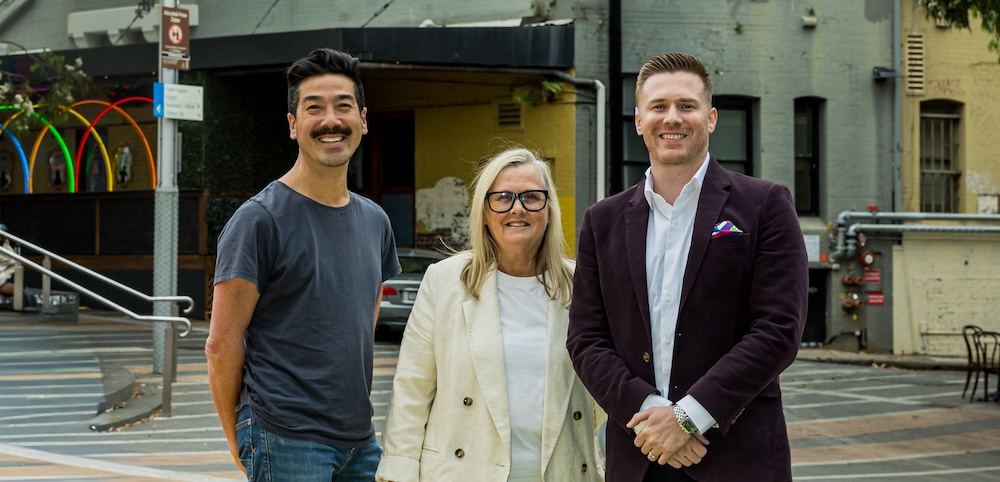
Lesbians omitted from study
The One Million Women study may be the largest research project ever conducted into women’s health issues, but same-sex attracted women have disappointingly still been left out, ACON’s Women’s Health Project coordinator said.
The Oxford University study engaged 1.3 million British women over a four-year period to learn about their lifestyle habits and health history and to track any links to cancer and other diseases.
The study confirmed theories that hormone replacement therapy, smoking and drinking increased the risk of cancer (by up to 10.6 percent for women who drank every day) but also showed that lifestyle factors were not as important as genes.
The researchers found no link between unhealthy habits adopted in youth and later risks of cancer or heart disease if such habits were stopped. Women could halve their risk of lung cancer in five years after quitting smoking and similarly the risks associated with drinking would start to decline once a person stopped. Ideally, though, not drinking at all was optimum for health outcomes.
ACON’s Women’s Health Project Officer Siri May welcomed the study as a guidance tool for the future of women’s health programs but lamented that once again same-sex women had not been included in the study.
In Australia it would be very hard to get a study of that size going considering our population, so it is great for us to touch base with that. But I would also be really interested to see a study like this that included a question on sexuality, she said.
It tends to be absent in large-scale studies on women’s health. We have a snapshot of women’s health dissected across the whole range of population and cultural groups but a question on sexual orientation isn’t included, which makes it really difficult for us to discern whether there are any differences based on living your life as a same-sex attracted woman compared to a heterosexual one.
May added that ACON has continually campaigned to have questions on sexual preference included in Australian studies, usually to no avail as researchers claim it could make people uncomfortable.
The study was still of great importance to the future of women’s health research and development, May said.
The risk factors they profile in the One Million Women study are definitely ones we’ve been looking at for a while in Australia. It is relevant to a lot of research being done, particularly by the NSW Cancer Council.
A lot of those messages around drinking and alcohol and smoking and even hormone replacement therapy are complementary to our health promotion material. We would definitely support the messages being raised around smoking in particular.
info: For more on the One Million Women study and its findings visit millionwomenstudy.org/introduction/.










Regrettably it is no surprise that this UK study omitted lesbians. It is but one of many studies which show such a narrow focus & poor methodology. I also note that their approach was “lifestyle habits and health history”. This without an understanding of the impact of society’s attitudes and treatment (in the wider, non-medical sense) will focus on the study’s participants as if they live in a vacuum. A social impact investigation should be undertaken as part of the overall research – ie. relevant to lives of lesbian women. For eg. the stress & health consequences of working etc. in a lesbophobic & heterosexist society should not be glossed over. Details are important.
Although the UK study was for women alone, another thing which often happens re reports of lesbian health (& other aspects of life) is that the research is of GLBTI people and lives, so that factors uniquely affecting lesbians are not investigated. Especially for health there are many differences between lesbians as a discrete group and gay men, (also having certain particularities) and GLBTI generally. For example focus groups should be held for the discrete groupings within the GLBTI conglomerate.
The women’s health movement has been alive for some four decades and it took much lobbying from lesbians to raise awareness of lesbians as a particular sub-group of the female population. There are both similarities with and differences from heterosexual women. Slowly a sexual orientation analysis has become part of women’s health & is still on the agenda. Now GLBTI health approaches have to learn to see women’s health as having both differences and similarities with the conglomerate GLBTI approaches. It’s not just a simple same-sex template.
It is important that professional health organisations, workers and researchers consult with the various community groups & also encourage (including funding) community research and input to policy & practice.
Lavender.
Co-author with Helen Myers of “An Overview of Lesbians and Health Issues”, Research paper for Coalition Of Activist Lesbians Australia (COAL).